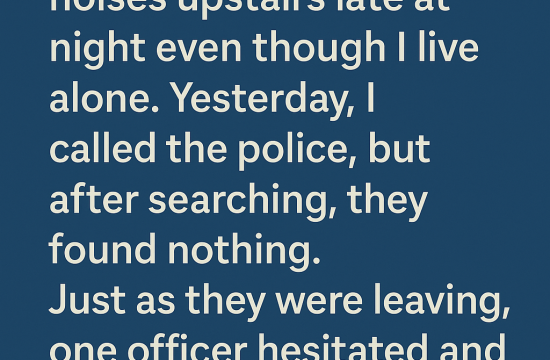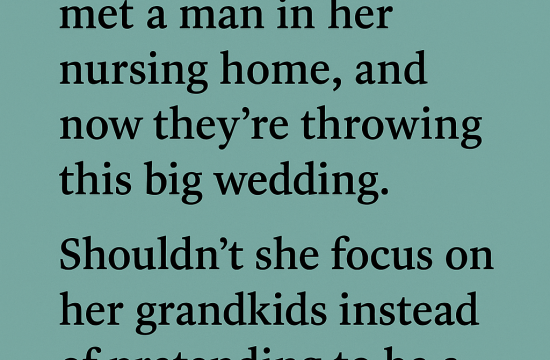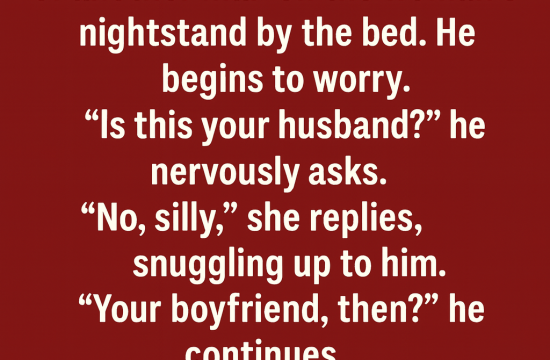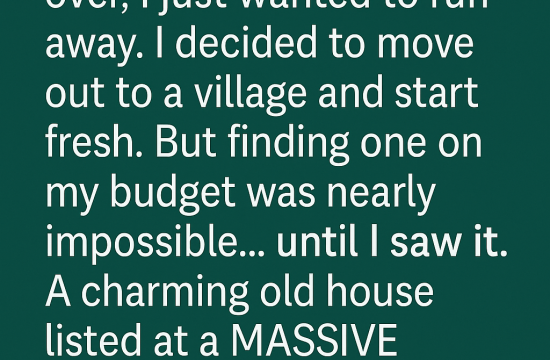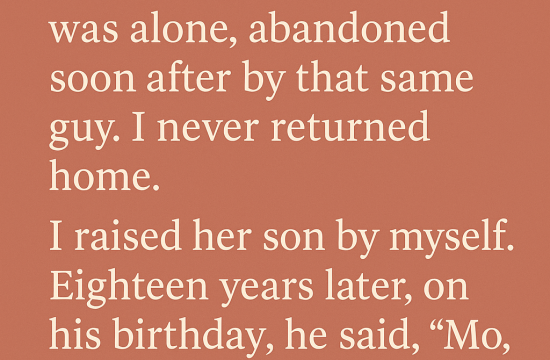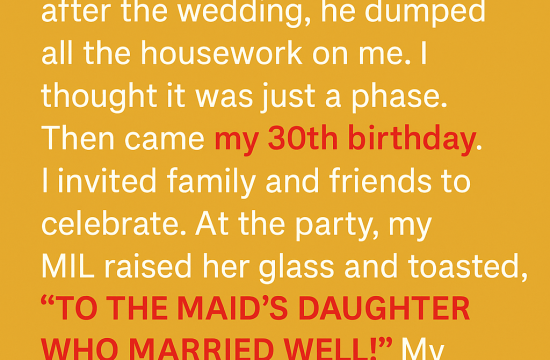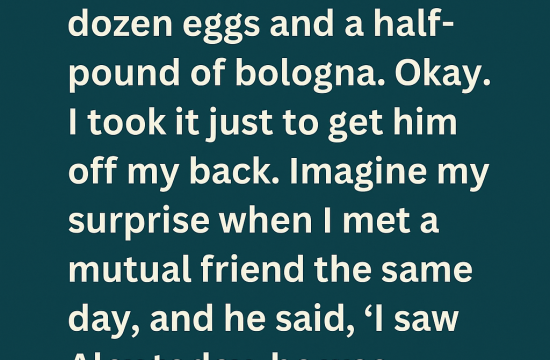When I held my daughter Sarah for the first time, the world seemed to pause.
Her tiny fingers curled around mine, her skin impossibly soft, and for one breathtaking moment, it felt as if every struggle I had endured—every swollen ankle, every sleepless night—had been worth it. This was supposed to be the purest kind of happiness.
But then I looked up and saw my husband, Alex.
His face wasn’t lit with pride or wonder. Instead, his jaw tightened, his eyes narrowing as he stared at Sarah’s blonde hair and her piercing blue eyes. Then came the words that would change everything:
“She doesn’t look like me. Who’s the father?”
The accusation hit me harder than any labor pain ever could. I had just given birth, body and soul exhausted, yet instead of love and support, I was met with suspicion. My protests, my tears, my promises that Sarah was his—none of it mattered. He didn’t hear me.
Within days, Alex demanded a paternity test. His voice was cold, detached, as if I were a stranger. And then he left, retreating to his parents’ house, abandoning me with a newborn and the kind of heartbreak that seeps into your bones.
The cruelty didn’t stop there. His mother called one night, her words like poison.
“If that baby isn’t Alex’s,” she sneered, “I’ll make sure you’re left with nothing.”
Her threat cut deeper than she realized. I was already reeling from Alex’s distrust, and now his family had turned against me too. What should have been the happiest time of my life was instead a spiral of fear, humiliation, and anger.
Two weeks later, the results came. I didn’t need the paper to know the truth—Sarah was Alex’s child. Science had only confirmed what my heart had always known.
I handed Alex the results, waiting for remorse, for relief, for anything that showed he regretted tearing our lives apart. Instead, he sighed, shrugged, and muttered, “It wasn’t easy for me either, you know.”
No apology. No accountability. Just self-pity.
When I told him about his mother’s threats, I watched the color drain from his face. Days later, he showed up at the door with flowers, stammering apologies, swearing he’d been blinded by insecurity and fear. For Sarah’s sake, I let him back in.
For a time, I convinced myself things could heal. We laughed sometimes, shared moments of peace. But underneath, the damage lingered like cracks in glass. Alex was different—restless, distracted, always turning his phone face down, his explanations flimsy and forced.
One night, I couldn’t fight the gnawing suspicion anymore. With trembling hands, I unlocked his phone.
What I found gutted me. Message after message, love notes and promises, not for me, but for another woman—his colleague. He told her he loved her, that he would leave me, that their future together was just around the corner.
This time, there was no denial, no room for excuses. It wasn’t insecurity driving him away—it was betrayal.
I took screenshots, gathered evidence, and called a lawyer the next morning. I didn’t scream or beg. I simply packed up Sarah and left. By the time Alex came home, the house was empty.
The divorce was ugly, but truth was on my side. His infidelity, his abandonment, his cruelty—all laid bare before the court. In the end, I was granted the house, the car, and child support—not out of spite, but to protect Sarah’s future.
Starting over was terrifying. Nights felt endless, mornings heavy with uncertainty. But slowly, life began to bloom again.
Sarah’s laugh filled the rooms, pure and untainted. I built a home where love wasn’t questioned or doubted—it simply was. I discovered strength I didn’t know I had, and with each passing day, the shadows of Alex’s betrayal faded.
In the end, Alex’s paternity test didn’t expose me—it exposed him. It showed me who he truly was, and it gave me the freedom to walk away.
What I found in the ruins of my marriage wasn’t just survival. It was strength, freedom, and the chance to raise my daughter in peace, without fear or suspicion poisoning our lives.
And that was worth more than any apology he could have given.




